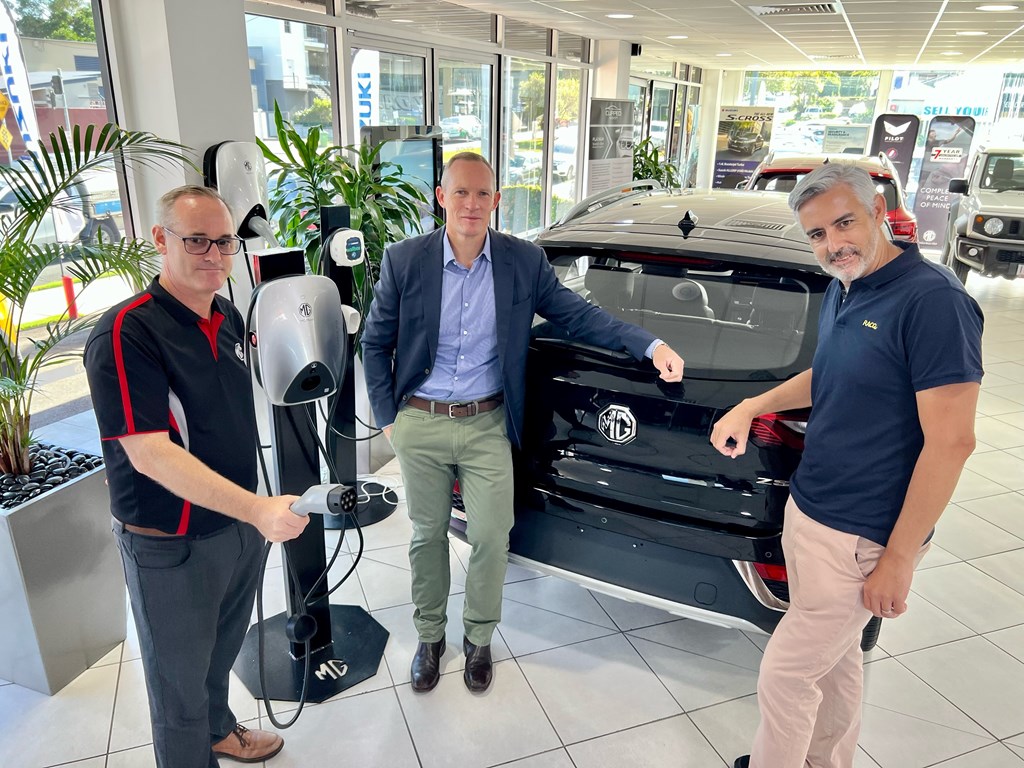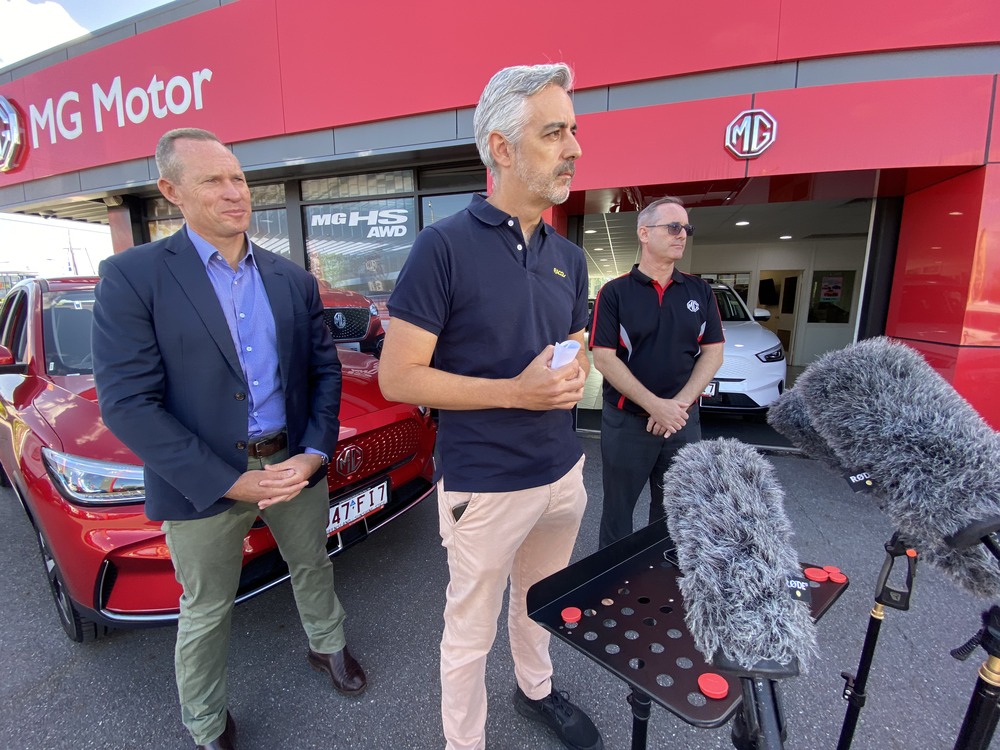The Queensland Government has announced today what can only be described as a massive leap forward for electric vehicle adoption in the state and will now lead the country in the largest EV rebate in the nation. The question is, will other states and territories now follow QLD?
Today’s announcement will see new eligibility requirements and an increased rebate available to Queenslanders under the Zero Emission Vehicle Rebate Scheme, increasing to a total maximum of $6,000 rebate when purchasing a new EV.
The scheme was initially launched on 1 July 2022, but today’s enhanced measures will ensure more Queenslanders and businesses are able to access an even greater range of EVs at better prices than ever before.
Changes to the scheme include:
- An increase to the rebate from $3000 to $6000 for eligible households earning up to a total gross household income of $180,000 per year.
- Applicants who have already applied and received a $3000 rebate under the earlier scheme, and who are under the total gross income threshold, are eligible for reassessment and an additional payment of $3000 rebate (totalling $6000 per eligible application).
- An increase to the eligibility threshold for vehicles, which will now exclude dealer delivery fees from determining ‘dutiable value’ from $58,000 to $68,000 (inc. GST).
Note: Individual Queenslanders or households who earn over the $180,000 threshold will still be eligible to claim a $3000 rebate if all other eligibility requirements are met.
Right now, a Tesla Model 3, costs A$64,698 driveway in QLD. This rebate would allow the vehicle to dip into the important $60k category and be in your driveway for just $58,698. A Model Y has a driveway price of A$72,858 which would see its new price become $66,858.
The cheapest Electric Vehicle in the country, the MG ZS EV was priced at $43,990 before on-road costs but has since had its pricing removed from the website. If we subtract the $6,000 rebate in QLD, this means we could be looking at a new electric vehicle price dipping into the $30-40k bracket for the first time in Australia.
“We’re seeing the prices of EVs fluctuate on the back of rising materials costs and inflation left by the Morrison Government, so we’ve increased the eligible price cap to $68,000, and increased the rebate amount from $3000 to $6000 for eligible households.
Minister for Energy, Renewables and Hydrogen, Mick de Brenni:
This is about making EVs more affordable and more accessible to all Queenslanders to slash emissions and act on climate change with cleaner technology. We want more zero emission vehicles on Queensland roads with Queensland families to have access to cheaper and cleaner vehicles.
We are committed to reducing the cost-of-living pressures of high petrol prices.
I was speaking to someone earlier this week who powers their EV with solar from their home. It only cost them $14.50 to drive almost 4,000 kilometres. Comparably, the cost of driving a petrol-powered car would be at least 30 times this.
We also want to see fleets transition to further drive down emissions. That’s why Queensland businesses can apply for up to five rebates per financial year, providing an opportunity for local businesses to make the switch to electric fleets.
This is an opportunity for Queensland businesses to step up and contribute to emissions reduction through transitioning their fleet operations.
The scheme has already proven popular, and we anticipate this will increase further with the higher threshold and rebate amount.

Having a larger rebate for electric vehicles, reduces the up-front cost to consumers, addressing perhaps the biggest blocker for people considering purchasing an EV for their next car, the price.
One of the other complaints is a lack of models to choose from. Currently, at least 23 EV models are available for purchase under $68,000. It’s anticipated 7 more will be added at this price point by the end of the year. It will be important for automakers to respond with additional supply to Australia and specifically Queensland as more vehicle buyers turn to EVs.
The change comes just days after the Federal Government announced a National EV Strategy.
RACQ is quite excited about the change, highlighting that today’s announcement of an increased rebate, will mean the MG ZS Excite EV and its petrol counterpart, the MG ZST Excite 1.3L would both cost around $1,032 per month to own and operate over a five-year loan.
A Telsa Model 3 would be cheaper than its closest petrol comparison, the Honda Accord Vti Turbo 1.5, costing $1,534 and $1,550 per month respectively.


As a state, Queensland are doing a lot to drive EV adoption including:
- The Queensland Government has committed $45 million over three years as a part of the Zero Emission Vehicle Strategy 2022-2032 (ZEV Strategy) and Action Plan 2022-2024.
- By continuing to take action to transition to ZEVs, while also addressing the challenging market conditions, the ZEV strategy is helping drive the state’s commitment of net zero emissions by 2050.
- Details of the new requirements, and an updated application form will be available online from July 1. Any person who purchases a new EV is encouraged to record proof of purchase to access the rebate.
- These new changes will serve to close the affordability gap through the provision of up-front financial assistance to buy an EV and reduce rising transport and energy costs impacting households.
- Importantly, the scheme will also help bolster the second-hand EV market long term, making EVs more affordable to all Queenslanders in the years to come.
- The required process to make these changes to the ZEV rebate scheme is underway, the current scheme will remain in place until then.
- There are over 400 public charging sites right across Queensland.
- 1 in 3 Queenslanders already have rooftop solar, meaning they can charge their cars at home for free, powered by the Queensland sun.
- The CSIRO predicts households that electrify completely by 2030 will spend $30,000 less in 20 years than their neighbour who doesn’t electrify.
- As of this week, 1,135 EV rebates ($3,000) had already been approved for Queenslanders.
